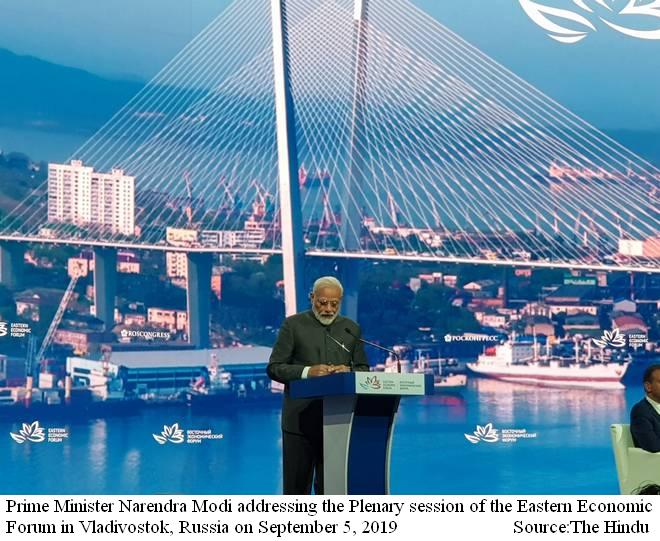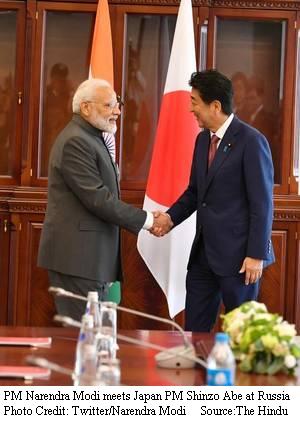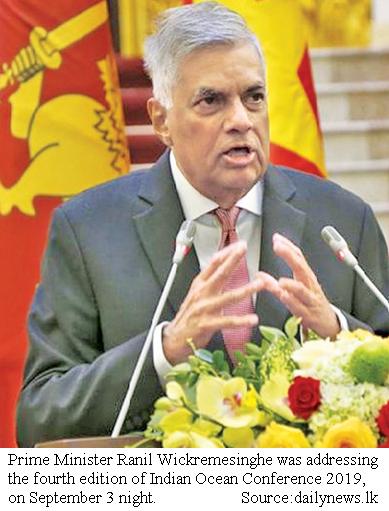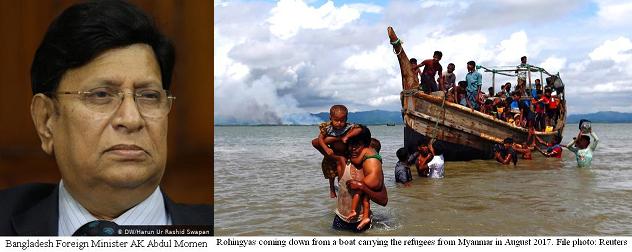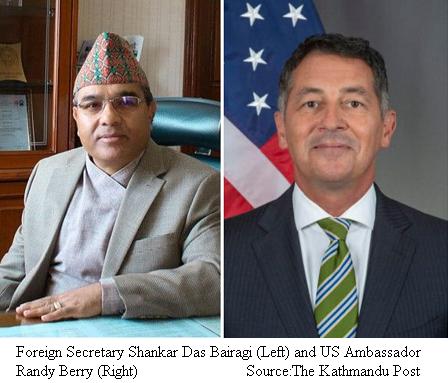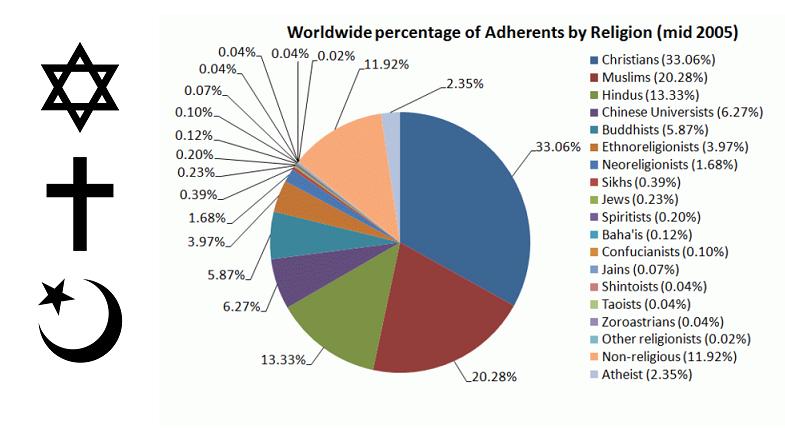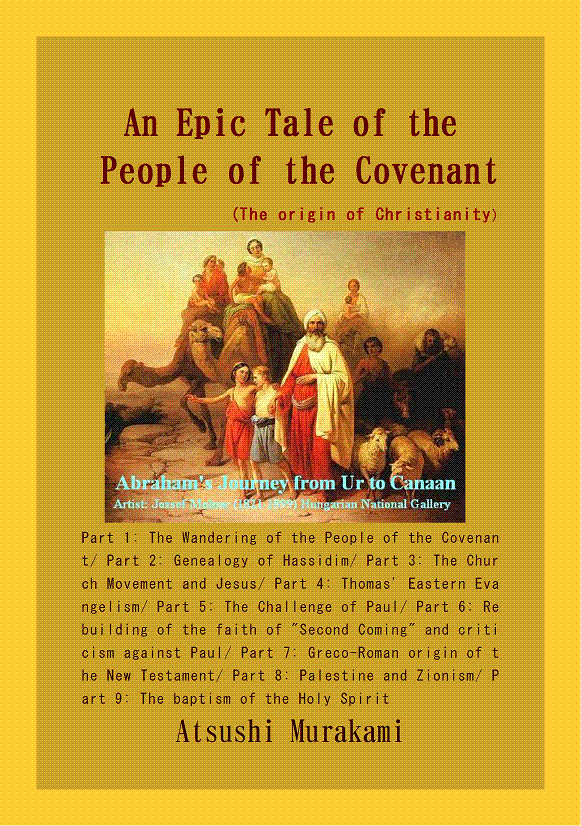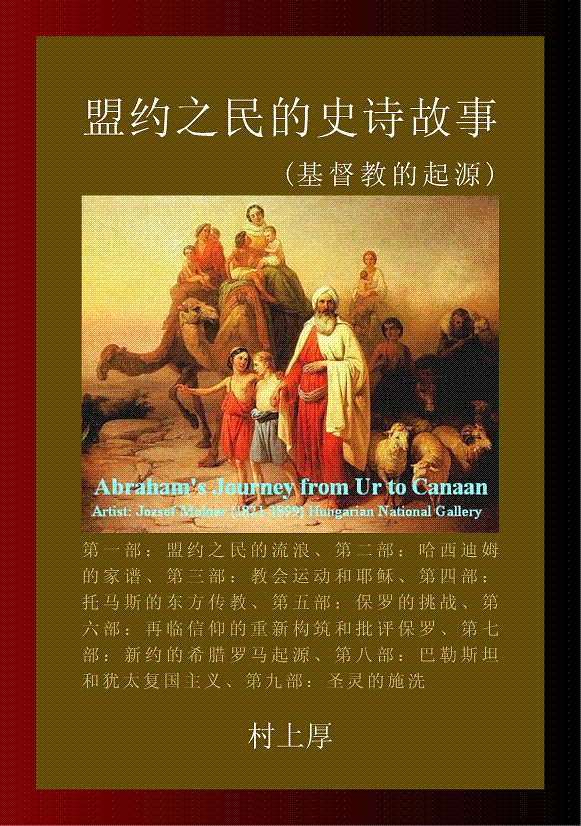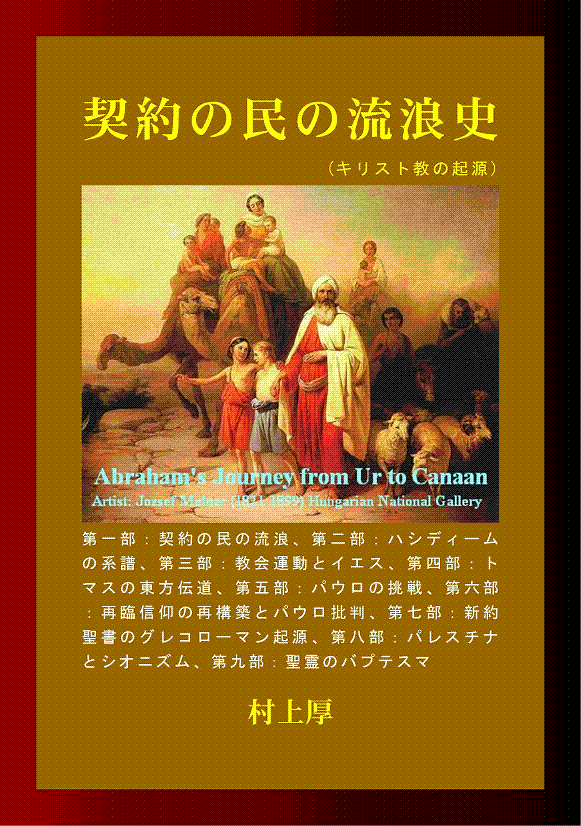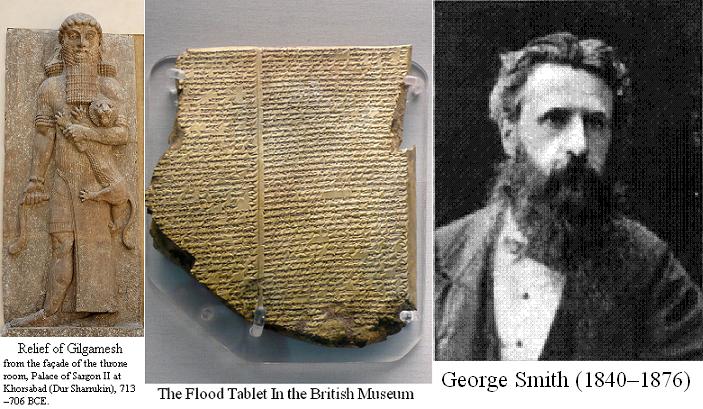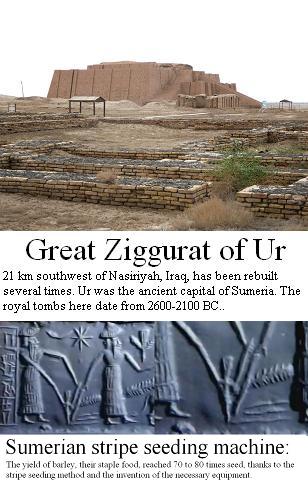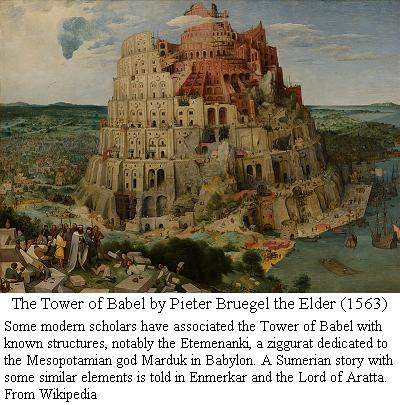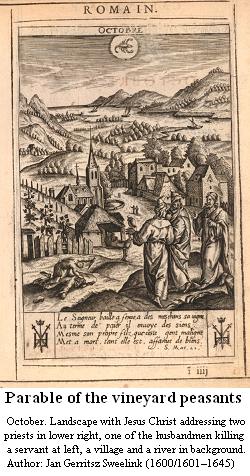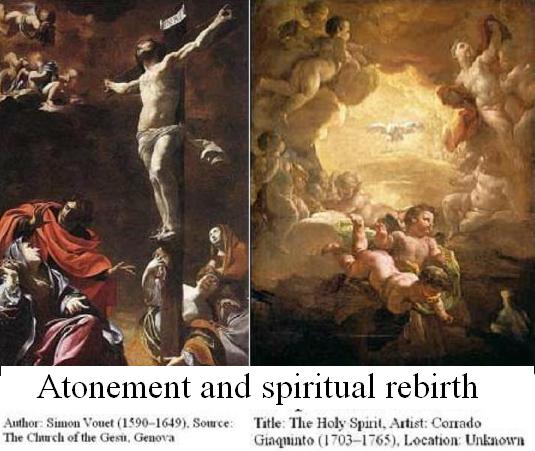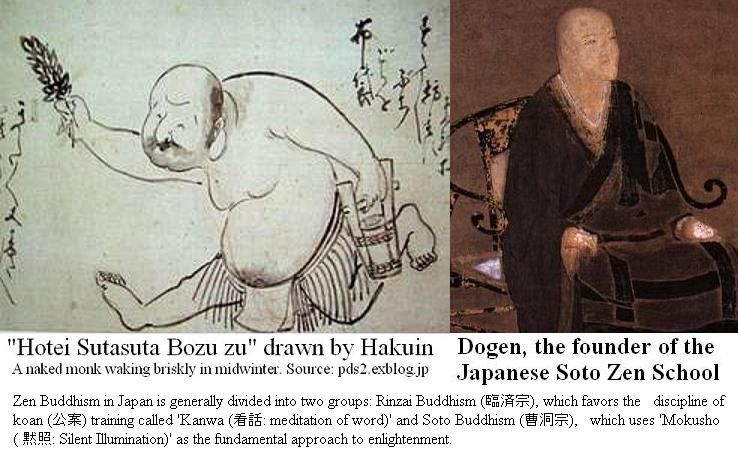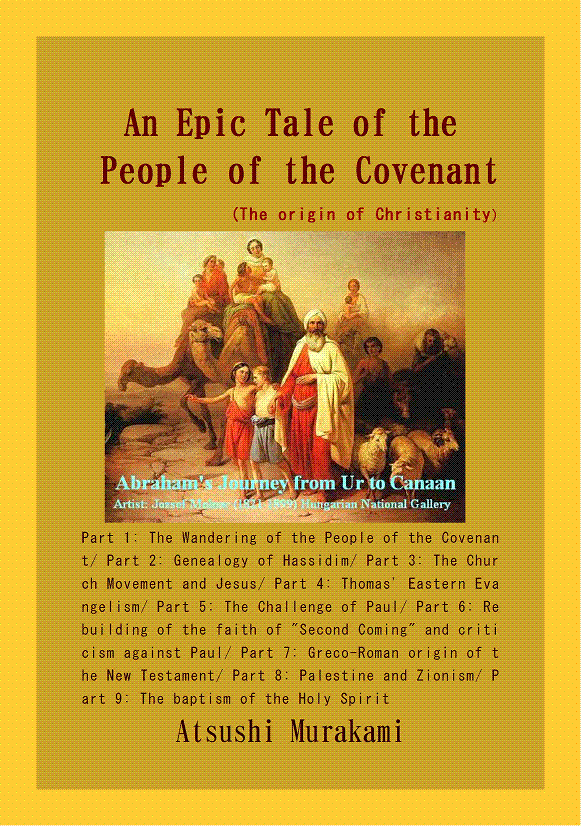| |||||||||||||||||||
|
पृष्ठ
एक सन्देश-
यह ब्लॉग समर्पित है साहित्य की अनुपम विधा "पद्य" को |
पद्य रस की रचनाओ का इस ब्लॉग में स्वागत है | साथ ही इस ब्लॉग में दुसरे रचनाकारों के ब्लॉग से भी रचनाएँ उनकी अनुमति से लेकर यहाँ प्रकाशित की जाएँगी |
सदस्यता को इच्छुक मित्र यहाँ संपर्क करें या फिर इस ब्लॉग में प्रकाशित करवाने हेतु मेल करें:-
kavyasansaar@gmail.com
pradip_kumar110@yahoo.com
pradip_kumar110@yahoo.com
इस ब्लॉग से जुड़े
शनिवार, 21 सितंबर 2019
【SEAnews:India Front Line Report】 September 19, 2019 (Thu) No. 3936
सोमवार, 16 सितंबर 2019
【SEAnews】Review:The baptism of the Holy Spirit (Parable of vineyard)-e
| ||||||||||||||||||||
|
सदस्यता लें
टिप्पणियाँ (Atom)
हलचल अन्य ब्लोगों से 1-
-
वसंत पंचमी - वसंत पंचमी खिले कुसुम महकी अमराई मधु वासंती पवन बही है, ऋतुराजा का स्वागत करने क़ुदरत सारी निखर रही है ! सरसों फूली खलिहानों में कण-कण जीवंत हुआ भू का...19 मिनट पहले
-
सरस्वती -वन्दना - * डॉ.सुरंगमा यादव* *प**द्मासना वीणापाणि, ज्ञान गरिमादायिनी* *श्वेतवसना* *, शुभ्रवर्णा, हस्त पुस्तकधारिणी है प्रणत मन तव चरण में ,तुम कृपा...16 घंटे पहले
-
विवाहिता पुत्री अनुकंपा नियुक्ति की हकदार-इलाहाबाद हाईकोर्ट - इलाहाबाद हाईकोर्ट ने जिला बेसिक शिक्षा अधिकारी सिद्धार्थ नगर को मृतक आश्रित कोटे में विवाहिता पुत्री की नियुक्ति पर दो माह में विचार कर आदेश करने का न...1 दिन पहले
-
ज़िंदगी अधूरी तेरे बिन - भाग दस (10) - ज़िंदगी अधूरी तेरे बिन - भाग दस (10)भाग 10 अंशुमन "वह कैसी है? क्या वह ठीक है?" मैंने पूछा जब शाश्वत ने मुझे फोन करके बताया कि उसने अपनी माँ से बात की है।...3 दिन पहले
-
सांख्य दर्शन रहस्य भाग - 01प्रकृति -पुरुष संयोग एवं सत्कार्यवाद - सांख्य दर्शन रहस्य भाग : 01 प्रकृति - पुरुष संयोग एवं सत्कार्यवाद संदर्भ > कारिका : 3,22,20,11, 9+15, (06 कारिकायें) पहले कारिकाओ को समझते है और अंत मे...4 दिन पहले
-
"The Mystery of the Tradition of Understanding the Future from the Sky" - आकाश से भविष्य समझने की परंपरा का रहस्य ✨ - "The Mystery of the Tradition of Understanding the Future from the Sky" - आकाश से भविष्य समझने की परंपरा का रहस्य ✨ [image: Gatyatmak Jyotish observing sun...1 हफ़्ते पहले
-
चाय : एक राष्ट्रीय लत की आत्मकथा - ✍🏻 डॉ. डंडा लखनवी ➖➖➖➖➖➖➖कभी चाय बहुत शरीफ़ हुआ करती थी। वह हर समय उपलब्ध नहीं रहती थी, न ही हर घर की सदस्य थी। बचपन में चाय मौसम देखकर आती थी—वह भी केवल ...1 हफ़्ते पहले
-
सूरज ओट से झाँक रहा है - *रोज़ कनखियों से देखे हमें * *सूरज ओट से झाँक रहा है * *कितने अधीर हम उसके लिए * *अपनी करनी ढाँक रहा है * *रोज़ सबेरे हम उठ देखें * *क्या ...1 हफ़्ते पहले
-
जरूरी है...... - जरूरी हैदिन, दोपहर और उजाले से परेकभी -कभीअंधेरे का होनाघने कोहरे का होनाऔर एकांत का कोनाजहां आत्ममुग्धता के चरम परआत्मचिंतन की -वास्तविकता मेंमेरे जैसा को...1 हफ़्ते पहले
-
-
गुजरात यात्रा - ..........दिनांक: 17-12-2025 की सुबह..... लम्बी यात्रा की ट्रेन है, लगभग 3000 किमी, गोहाटी से ओखा। हम इसमे बनारस से चढ़े हैं, द्वारिका पहुँचना है। सारनाथ...2 हफ़्ते पहले
-
796. पाँव तैयार नहीं - पाँव तैयार नहीं *** राह सामने है, चलने को पाँव तैयार नहीं खड़े रहने, अड़े रहने को पाँव मददगार नहीं पाँव ज़ख़्मी हो गए, अब वे ठहरे रहेंगे न ज़मीन न स्वर्ग की...2 हफ़्ते पहले
-
यूजीसी–आईकेएस मास्टर ट्रेनर्स के लिए एक दिवसीय ओरिएंटेशन प्रोग्राम लखनऊ विश्वविद्यालय में आयोजित - ------------------------------ लखनऊ, 07 दिसंबर 2025: विश्वविद्यालय अनुदान आयोग (UGC) और शिक्षा मंत्रालय के भारतीय ज्ञान परंपरा (IKS) प्रभाग द्वारा संयुक्त...1 महीना पहले
-
लो क सं घ र्ष !: स्टालिन और हिटलर में अंतर फिर आप कहते हैं कि स्त... - लो क सं घ र्ष !: स्टालिन और हिटलर में अंतर फिर आप कहते हैं कि स्त...: स्टालिन और हिटलर में अंतर फिर आप कहते हैं कि स्तालिन तानाशाह थे चर्चिल अपनी बहुचर्चित...1 महीना पहले
-
ये क्या है...? संध्या शर्मा - ये क्या है? ये पुलक है, ये झंकार है, ये अधूरे बोलों का संचार है। ये चुप्पी में सिमटा कोलाहल है, ये मन से उठता हालाहल है। ये क्या है? ये प्राणों का ...1 महीना पहले
-
अपने सारथी हम खुद - अपने सारथी हम खुद अगले दिन सुबह उठे तो कहीं जाने की हड़बड़ी नहीं थी। आज हमें उन्हीं जगह पर जाना था जहाँ अपनी गाड़ी से जाया जा सकता था। किस जगह जाना ...2 महीने पहले
-
क्या केवल प्रशासनिक पद पर बैठी बेटी ही मजबूत है -मिशन शक्ति अभियान पर सुलगता सवाल शालिनी कौशिक एडवोकेट का - उत्तर प्रदेश सरकार द्वारा माननीय मुख्यमंत्री योगी आदित्यनाथ जी के मार्गदर्शन में ''महिलाओं तथा बच्चों की सुरक्षा, सशक्तिकरण व सम्मान'' के उदद्देश...2 महीने पहले
-
डर क्यूँ - *मौत तो आनी है तो फिर मौत का क्यों डर रखूँ* *जिंदगी आ, तेरे क़दमों पर मैं अपना सर रखूँ* *जिसमें माँ और बाप की सेवा का शुभ संकल्प हो* *चाहता हूँ मैं भी...2 महीने पहले
-
किताब मिली -शुक्रिया -23 - हमारी आंख में खद्दर के ख़्वाब बिकते थे तुम आए और यहां बोस्की के थान खुले ये कौन भूल गया उन लबों का ख़ाका यहां ये कौन छोड़ गया गुड़ के मर्दबान खुले ** ब...3 महीने पहले
-
कोदंड - उत्कृष्ट पत्रिका अनुभूति के कोदंड विशेषांक में प्रकाशित शक्ति का प्रतीक कोदंड मर्यादा संग शक्ति का प्रतीक बना कोदंड देख अविनय के भाव को होता रहा प...3 महीने पहले
-
आखिर क्यों ? - *आखिर क्यों **?* आखिर क्यों मानव इतना परेशान है कि लोग हत्या जैसा जघन्य अपराध करने से भी नहीं डर रहे है. क्या यह क़ानून व्यवस्था की कोई कमी है कि लोगो...5 महीने पहले
-
रुख़ से लेकिन ख़ुशी नहीं जाती - सोच यह बेतुकी नहीं जाती के मेरी ज़िन्दगी नहीं जाती कोई भी कैफ़ियत हो लेकिन उधर मेरी तबियत कभी नहीं जाती बात निकली कहीं से पर मुझतक आयी जो भी वही नहीं ...6 महीने पहले
-
लालबुझक्कड़ की राजनैतिक हार - सुबह-सुबह अपने घर की बगिया में हरे-भरे पेड़ के नीचे पड़ी पत्थर की बेंच पर बैठे चाय की चुस्कियों का स्वाद लिया जा रहा था, उसी समय मोबाइल की घंटी ने ध्यान अप...8 महीने पहले
-
काश मैं कार्टूनिस्ट होता - काश मैं कार्टूनिस्ट होता। बचपन में जो किरकिरा चेहरा किताब की कॉपी पर बनाता था, वो कभी मास्टर जी की डांट का पात्र बना, तो कभी दोस्तों की वाहवाही का। सोचा था...8 महीने पहले
-
त्राटक - सूरज की आंख में आँख डाल जब करती हूँ मंत्रोच्चार ॐ मित्राय नमः ॐ रवये नमः ॐ सूर्याय नमः… देवत्व से भरता है मन मुंद जाते हैं स्वतः...8 महीने पहले
-
हे रुष्ट प्रकृति - हे रुष्ट प्रकृति करके क्रोध का त्याग होंगी तुम कैसे प्रसन्न? ये मूढ़ मानव है तो तुम्हारी ही संतान लाड़ का कर दुरुपयोग पहुँचाई तुम्हारे जिया को ठेस जानता ...9 महीने पहले
-
बढ़ा हुआ हाथ - कल शाम अपनी नातिन दित्सा को लेकर पास वाली कॉलोनी के बगीचे में गई थी. ये थोड़ा बड़ा बगीचा है. वहीं चार झूले और फिसलपट्टी लगी है l घूमने के लिए चारों तरफ ज...9 महीने पहले
-
सुर्ख गुलाब - एक सुर्ख़ गुलाब देकर कर देते हैं लोग अपनी भावनाओं का इज़हार। यदि यही है अपने प्रीत को बयाँ करना तो कई बार बांधे मैंने ख़ुद ही अपने जुड़े में सुर्ख़ गुल...10 महीने पहले
-
हम सभी बेचैन से हैं न - अभी कुछ दिनों से मैं अपनी कजिन के घर आई हुई हूं, वजह कुछ खास नहीं बस अपनी खामखाह की बैचेनी को की कुछ कम करने का इरादा था और अपने मन को हल्का करना था। अब वाप...1 वर्ष पहले
-
किन भावों का वरण करूँ मैं? - हर पल घटते नए घटनाक्रम में, ऊबड़-खाबड़ में, कभी समतल में, उथल-पुथल और उहापोह में, किन भावों का वरण करूँ मैं ? एक भाव रहता नहीं टिककर, कुछ नया घटित फिर ह...1 वर्ष पहले
-
बचपन के रंग - - बहुत पुरानी , घोर बचपन की बातें याद आ रही है. मुझसे पाँच वर्ष छोटे भाई का जन्म तब तक नहीं हुआ था. पिताजी का ट्रांस्फ़र होता रहता था - उन दिनों हमलोग तब ...1 वर्ष पहले
-
क्या अमेरिकन समाज स्त्रीविरोधी है? : (डॉ.) कविता वाचक्नवी - क्या अमेरिकन समाज स्त्रीविरोधी है? : (डॉ.) कविता वाचक्नवी अमेरिका के चुनाव परिणाम की मेरी भविष्यवाणी पुनः सत्य हुई। लोग मुझे पूछते और बहुधा हँसते भी हैं क...1 वर्ष पहले
-
शब्द से ख़ामोशी तक – अनकहा मन का (२६) - * बेशक कोई रिश्ता हमें जन्म से मिलता है परंतु उस रिश्ते से जुड़ाव हमारे मनोभाव पर निर्भर करता है । जन्म मर...1 वर्ष पहले
-
बीज - मंत्र . - शब्द बीज हैं! बिखर जाते हैं, जिस माटी में , उगा देते हैं कुछ न कुछ. संवेदित, ऊष्मोर्जित रस पगा बीज कुलबुलाता फूट पड़ता , रचता नई सृष्टि के अंकन...1 वर्ष पहले
-
-
-
कविता : खेल - शहर के बीच मैदान जहाँ खेलते थे बच्चे और उनके धर्म घरों में खूँटी पर टँगे रहते थे जबसे एक पत्थर लाल हुआ तो दूसरे ने ओढ़ी हरी चादर तबसे बच्चे घरों में कैद...5 वर्ष पहले
-
दोहे "रंगों की बौछार" (डॉ.रूपचन्द्र शास्त्री 'मयंक') - *होली का त्यौहार* *-0-0-0-0-0-* *फागुन में अच्छी लगें, रंगों की बौछार।* *सुन्दर, सुखद-ललाम है, होली का त्यौहार।।* *--* *शीत विदा होने लगा, चली बसन्त बयार।*...5 वर्ष पहले
-
कांच के टुकड़े - सुनो मेरे पास कुछ कांच के टुकड़े हैं पर उनमें प्रतिबिंब नहीं दिखता पर कभी फीका महसूस हो तो उन्हें धूप में रंग देती हूं चमक तीक्ष्ण हो जाते तो दुबारा ...5 वर्ष पहले
-
-
मॉर्निंग वॉक- एक सुरक्षित भविष्य - जीवन में चलते चलते कभी कुछ दिखाई दे जाता है, जो अचानक दिमाग में एक बल्ब जला देता है , एक विचार कौंधता है, जो मन में कुनमुनाता रहता है, जब तक उसे अभिव्यक...6 वर्ष पहले
-
2019 का वार्षिक अवलोकन (सत्ताईसवां) - डॉ. मोनिका शर्मा का ब्लॉग Search Results Web results परिसंवाद *आपसी रंजिशों से उपजी अमानवीयता चिंतनीय* अमानवीय सोच और क्रूरता की कोई हद नहीं बची ह...6 वर्ष पहले
-
जियो सेट टॉप बॉक्स - महा बकवास - जियो फ़ाइबर सेवा धुंआधार है, और जब से इसे लगवाया है, लाइफ़ है झिंगालाला. आज तक कभी ब्रेकडाउन नहीं हुआ, बंद नहीं हुआ और स्पीड भी चकाचक. ऊपर से लंबे समय से...6 वर्ष पहले
-
परमेश्वर - प्रार्थना के दौरान वह मुझसे मिला उसे मुझसे प्रेम हुआ उसकी मैली कमीज के दो बटन टूटे थे टिका दिया उसने अपना सर मेरे कंधे पर वह युद्ध में हारा सैनिक था शायद!...6 वर्ष पहले
-
Aakhir kab ? आखिर कब ? - * आखिर कब ? आखिर क्यों आखिर कबतक यूँ बेआबरू होती रहेंगी बेटीयाँ आखिर कबतक हवाला देंगे हम उनके पहनावे का उनकी आजादी का उनकी नासमझी और समझदारी का क्यों ...6 वर्ष पहले
-
तुम्हारा स्वागत है - 1 तुम कहती हो " जीना है मुझे " मैं कहती हूँ ………… क्यों ? आखिर क्यों आना चाहती हो दुनिया में ? क्या मिलेगा तुम्हे जीकर ? बचपन से ही बेटी होने के दंश ...6 वर्ष पहले
-
ना काहू से दोस्ती .... - *पुलिस और वकील एक ही परिवार के दो सदस्य से होते हैं, दोनों के लक्ष समाज को क़ानून सम्मत नियंत्रित करने के होते हैं, पर दिल्ली में जो हुआ या हो रहा है उस...6 वर्ष पहले
-
Kritidev to Unicode Converter - [image: Real Time Font Converter] DL-Manel-bold. (ã t,a udfk,a fnda,aâ) Unicode (යුනිකෝඩ්) ------------------------------ © 2011 Language Technology R...6 वर्ष पहले
-
इंतज़ार और दूध -जलेबी... - वोआते थे हर साल। किसी न किसी बहाने कुछ फरमाइश करते थे। कभी खाने की कोई खास चीज, कभी कुछ और। मैं सुबह उठकर बहन को फ़ोन पे अपना वह सपना बताती, यह सोचकर कि ब...6 वर्ष पहले
-
राजू उठ ... चल दौड़ लगाने चल - राजू उठ भोर हुई चल दौड़ लगाने चल पानी गरम कर दिया है दूध गरम हो रहा है राजू उठ भोर हुई चल दौड़ लगाने चल दूर नहीं अब मंजिल पास खड़े हैं सपने इक दौड़ लगा कर जीत...6 वर्ष पहले
-
काया - काया महकाई सतत, लेकिन हृदय मलीन। चहकाई वाणी विकट, प्राणी बुद्धिविहीन। प्राणी बुद्धिविहीन, भरी है हीन भावना। खिसकी जाय जमीन, न करता किन्तु सामना। पाकर उच्चस्...6 वर्ष पहले
-
-
कविता और कुछ नहीं... - कविताएं और कुछ नहीं आँसू हैं लिखे हुए.... खुशी की आँच कि दुखों के ताप के अतिरेक से पोषित लयबद्ध हुए... #कविताक्याहै6 वर्ष पहले
-
cara mengobati herpes atau dompo - *cara mengobati herpes atau dompo* - Kita harus mengetahui apa Gejala Penyakit Herpes Dan Pengobatannya, agar ketika kita terjangkiti penyakit herpes, kit...6 वर्ष पहले
-
अरे अरे अरे - आ गईं तुम आना ही था तुम्हे देहरी पर कटोरी उलटी रख कर माँ ने कहा था, आती ही होगी वह देखना पहुँच जायेगी। वह भीगी हुई चने की दाल और हरी मिर्च जो तोते के लिये...6 वर्ष पहले
-
यह विदाई है या स्वागत...? - एक और नया साल...उफ़्फ़ ! इस कमबख़्त वक्त को भी जाने कैसी तो जल्दी मची रहती है | अभी-अभी तो यहीं था खड़ा ये दो हज़ार अठारह अपने पूरे विराट स्वरूप में...यहीं पह...7 वर्ष पहले
-
मन के अंदर चल रहा निरंतर संघर्ष कठिन यह मानव के ... - इच्छाओं के चक्रवात से निरंतर जूझ रहा यह मानव मन उड़ जाता है अशक्त आत्मबलरहित तिनके के माफिक। इधर उधर बेचैन कहीं भी, बिना छोर और बिना ठिकाना दरबदर भटकता व्...7 वर्ष पहले
-
BIJASAN DEVI - विंध्याचल पर्वत पर विराजी हैं यह देवी, सबके लिए करती हैं न्याय - [image: Navratri 2018: विंध्याचल पर्वत पर विराजी हैं यह देवी, सबके लिए करती हैं न्याय] *मध्यप्रदेश बिजासन देवी धाम को आज कौन नहीं जानता। कई लोगों की कुलदेव...7 वर्ष पहले
-
पापा तुम क्यों चले गए ? - पापा ……………………………….. तुम्हारी साँसों में धडकन सी थी मैं , जीवन की गहराई में बचपन सी थी मैं । तुम्हारे हर शब्द का अर्थ मैं , तुम्हारे बिना व्यर्थ मैं , ...7 वर्ष पहले
-
कविता- " इक लड़की" 8 मार्च- अंतर्राष्ट्रीय महिला दिवस पर - *इक लड़की* *मुस्कराहट, * *उसकी आँखों से उतर;* *ओठों को दस्तक देती;* *कानों तक फ़ैल गई थी.* *जो* *उसकी सच्चाई की जीत थी. * *और * *उसकी उपलब्धि से आई थी.* *वो ...7 वर्ष पहले
-
मेरी कविता - जीवन - *जीवन* *चित्र - google.com* *जीवन* * तुम हो एक अबूझ पहेली, न जाने फिर भी क्यों लगता है तुम्हे बूझ ही लूंगी. पर जितना तुम्हे हल करने की कोशिश कर...8 वर्ष पहले
-
उड़ चला है वक्त..... - वक्त है या नहीं है वक्त वक्त का क्या बीतता जाता है कोसना वक्त को मूर्खता है निरी अनमोल देन है ये वक्त.....दाता की नेमत है ये वक्त वक्त का... हर लम्हा अकूत ...8 वर्ष पहले
-
“ रे मन ” - *रूह की मृगतृष्णा में* *सन्यासी सा महकता है मन* *देह की आतुरता में* *बिना वजह भटकता है मन* *प्रेम के दो सोपानों में* *युग के सांस लेता है मन* *जीवन के ...8 वर्ष पहले
-
-
मन का टुकड़ा मनका बनाकर - मन का टुकड़ा मनका बनाकर मनबसिया का ध्यान करूं | प्रेम की राह बहुत ही जटिल है ; चल- चल कर आसान करूं | (१५ जुलाई २०१७, रात्रि )8 वर्ष पहले
-
ये कैसा संस्कार जो प्यार से तार-तार हो जाता है? - जात-पात न धर्म देखा, बस देखा इंसान औ कर बैठी प्यारछुप के आँहे भर न सकी, खुले आम कर लिया स्वीकारहाय! कितना जघन्य अपराध! माँ-बाप पर हुआ वज्रपातनाम डुबो दिया,...8 वर्ष पहले
-
हिन्दी ब्लॉगिंग : आह और वाह!!!...3 - गत अंक से आगे.....हिन्दी ब्लॉगिंग का प्रारम्भिक दौर बहुत ही रचनात्मक था. इस दौर में जो भी ब्लॉगर ब्लॉगिंग के क्षेत्र में सक्रिय थे, वह इस माध्यम के प्रति ...8 वर्ष पहले
-
प्रेम करती हूँ तुमसे - यमुना किनारे उस रात मेरे हाँथ की लकीरों में एक स्वप्न दबाया था ना उस क्षण की मधुस्मृतियाँ तन को गुदगुदाती है उस मनभावन रुत में धडकनों का मृदंग बज उ...8 वर्ष पहले
-
गाँधी जी...... - गाँधी जी...... --------- चौराहॆ पर खड़ी,गाँधी जी की प्रतिमा सॆ,हमनें प्रश्न किया, बापू जी दॆश कॊ आज़ादी दिला कर, आपनॆं क्या पा लिया, बापू आपके सारॆ कॆ सारॆ सि...8 वर्ष पहले
-
Demonetization and Mobile Banking - *स्मार्टफोन के बिना भी मोबाईल बैंकिंग संभव...* प्रधानमंत्री मोदीजी ने अपनी मन की बात में युवाओं से आग्रह किया है कि हमें कैशलेस सोसायटी की तरफ बढ़ना है औ...9 वर्ष पहले
-
आप अदालत हैं - अपना मानते हैं जिन्हें वही नहीं देते अपनत्व। पक्षपात करते हैं सदैव वे पुत्री के आँसुओं का स्वर सुन। नहीं जाना उन्होंने मेरी कटुता को न ही मेरी दृष्टि में बन...9 वर्ष पहले
-
फिर अंधेरों से क्यों डरें! - प्रदीप है नित कर्म पथ पर फिर अंधेरों से क्यों डरें! हम हैं जिसने अंधेरे का काफिला रोका सदा, राह चलते आपदा का जलजला रोका सदा, जब जुगत करते रहे हम दीप-बा...9 वर्ष पहले
-
-
चलो नया एक रंग लगाएँ - लाल गुलाबी नीले पीले, रंगों से तो खेल चुके हैं, इस होली नव पुष्प खिलाएँ, चलो नया एक रंग लगाएँ । मानवता की छाप हो जिसमे, स्नेह सरस से सना हो जो, ऐसी होली खू...9 वर्ष पहले
-
-
स्वागतम् - मित्रों, सभी को अभिवादन !! बहुत दिनों के बाद कोई पोस्ट लिख रहा हूँ | इतने दिनों ब्लॉगिंग से बिलकुल दूर ही रहा | बहुत से मित्रों ने इस बीच कई ब्लॉग के लि...9 वर्ष पहले
-
विचार शून्यता। - विचार , कई बार बहते है हवा से, छलकते है पानियों से, झरते है पत्तियों से और कई बार उठते है गुबार से घुटते है, उमड़ते है, लीन हो जाते है शून्य में फिर यह...10 वर्ष पहले
-
बीमा सुरक्षा और सुनिश्चित धन वापसी - कविता - अविनाश वाचस्पति - ##AssuredIncomePlanPolicy निश्चित धन वापसी और बीमा सुविधा संदेह नहीं यह पक्का बनाती है विश्वास विश्वास में ही मौजूद रहती है यह आस धन भी मिलेगा और निडर ...10 वर्ष पहले
-
एक रामलीला यह भी - एक रामलीला यह भी यूं तो होता है रामलीला का मंचन वर्ष में एक बार पर मेरे शरीर के अंग अंग करते हैं राम, लक्ष्मण, सीता और हनुमान के पात्र जीवन्त. देह की सक...10 वर्ष पहले
-
-
-
-
मन गुरु में ऐसा रमा, हरि की रही न चाह - ॐ श्री गुरुवे नमः *ॐ ब्रह्मानंदं परमसुखदं केवलं ज्ञानमूर्तिम् ।* * द्वंद्वातीतं गगनसदृशं तत्वमस्यादिलक्ष्यम् ॥ एकं नित्यं विमलमचलं सर्वधीसाक्षीभूतम् । ...10 वर्ष पहले
-
गुरु पूर्णिमा - आज गुरु पूर्णिमा है ! अपने गुरु के प्रति आभार प्रकट करने का दिवस ,गुरु शब्द का अर्थ होता है अँधेरे से प्रकाश की और ले जाने वाला ,अज्ञान ज्ञान की और ले...10 वर्ष पहले
-
-
-
-
हमारा सामाजिक परिवेश और हिंदी ब्लॉग - वर्तमान नगरीय समाज बड़ी तेजी से बदल रहा है। इस परिवेश में सामाजिक संबंध सिकुड़ते जा रहे हैं । सामाजिक सरोकार से तो जैसे नाता ही खत्म हो गया है। प्रत्येक...10 वर्ष पहले
-
क्रिकेट विश्व कप 2015 विजय गीत - धोनी की सेना निकली दोहराने फिर इतिहास अब तो अपनी पूरी होगी विश्व विजय की आस | शास्त्री की रणनीति भी है और विराट का शौर्य , धोनी की तो धूम मची है विश्व ...10 वर्ष पहले
-
'मेरा मन उचट गया है त्यौहारों से' - मेरा मन उचट गया है त्यौहारों से… मेरे कान फ़ट चुके हैं सवेरे से लाउड वाहियत गाने सुनकर और फ़ुर्र हो चुका है गर्व। ये कौनसा रंग है मेरे देश का? बिल्कुल ऐसा ...10 वर्ष पहले
-
-
कथा सुनो शबाब की - *कथा सुनो शबाब की* *सवाल की जवाब की* *कली खिली गुलाब **की* *बड़े हसीन ख़ाब की* * नया नया विहान था* * घ...11 वर्ष पहले
-
कम्बल और भोजन वितरण के साथ "अपंगता दिवस" संपन्न हुआ - *नई दिल्ली: विगत 3 दिसम्बर 2014 दिन-बधुवार को सुबह 10 बजे, स्थान-कोढ़ियों की झुग्गी बस्ती,पीरागढ़ी, दिल्ली में गुरु शुक्ल जैन चैरिटेबल ट्रस्ट (पंजीकृत) दिल...11 वर्ष पहले
-
जून 2014 के बाद की गज़लें/गीत (21) चलो-चलो यह देश बचायें ! (‘शंख-नाद’ से) - (सारे चित्र' 'गूगल-खोज' से साभार) चुपके-खुल कर अमन जलाते | खिलता महका चमन जलाते || अशान्ति की जलती ज्वाला से- सुखद शान्ति का भवन जलाते || हिंसा के दुर्दम प...11 वर्ष पहले
-
झरीं नीम की पत्तियाँ (दोहा-गीतों पर एक काव्य) (14) आधा संसार (नारी उत्पीडन के कारण) (क) वासाना-कारा (vi) कुबेर-सुत | - (सारे चित्र' 'गूगल-खोज' से साभार) दरिद्रता-दुःख-दीनता, निर्धनता की मार ! कितना पीड़ित विश्व में, है आधा संसार !! पुत्र कुबेरों के कई, कारूँ के कुछ लाल ! ज...11 वर्ष पहले
-
आहटें ..... - *आज भोर * *कुछ ज्यादा ही अलमस्त थी ,* *पूरब से उस लाल माणिक का * *धीरे धीरे निकलना था * *या * *तुम्हारी आहटें थी ,* *कह नहीं सकती -* *दोनों ही तो एक से...11 वर्ष पहले
-
झाँसी की रानी पर आधारित "आल्हा छंद" - झाँसी की रानी पर आधारित 'अखंड भारत' पत्रिका के वर्तमान अंक में सम्मिलित मेरी एक रचना. हार्दिक आभार भाई अरविन्द योगी एवं सामोद भाई जी का. सन पैंतीस नवंबर उ...11 वर्ष पहले
-
हम,तुम और गुलाब - आज फिर तुम्हारी पुरानी स्मृतियाँ झंकृत हो गई और इस बार कारण बना वह गुलाब का फूल जिसे मैंने दवा कर किताबों के दो पन्नों के भूल गया गया था और उसकी हर पंखुड़िय...11 वर्ष पहले
-
-
गाँव का दर्द - गांव हुए हैं अब खंढहर से, लगते है भूल-भुलैया से। किसको अपना दर्द सुनाएँ, प्यासे मोर पप्या ? आंखो की नज़रों की सीमा तक, शहरों का ही मायाजाल है, न कहीं खे...11 वर्ष पहले
-
-
रंग रंगीली होली आई. - [image: Friends18.com Orkut Scraps] रंग रंगीली होली आई.. रंग - रंगीली होली आई मस्तानों के दिल में छाई जब माह फागुन का आता हर घर में खुशियाली...11 वर्ष पहले
-
-
भ्रष्ट आचार - स्वतंत्र भारत की नीव में उस समय के नेताओं ने अपनी महत्त्वाकांक्षाओं के रख दिये थे भ्रष्ट आचार फिर देश से कैसे खत्म हो भ्रष्टाचार ?12 वर्ष पहले
-
अन्त्याक्षरी - कभी सोचा नहीं था कि इसके बारे में कुछ लिखूँगी: बचपन में सबसे आमतौर पर खेला जाने वाला खेल जब लोग बहुत हों और उत्पात मचाना गैर मुनासिब। शायद यही वजह है कि इ...12 वर्ष पहले
-
संघर्ष विराम का उल्लंघन - जम्मू,संघर्ष विराम का उल्लंघनकरते हुए पाकिस्तानी सेना ने रविवार को फिर से भारतीय सीमा चौकियों पर फायरिंग की। इस बार पाकिस्तान के निशाने पर जम्मू जिले के का...12 वर्ष पहले
-
प्रतिभा बनाम शोहरत - “ हम होंगें कामयाब,हम होंगें कामयाब,एक दिन ......माँ द्वारा गाये जा रहे इस मधुर गीत से मेरे अन्तःकरण में नए उत्साह का स्पंदन हो रहा था .माँ मेरे माथे को...12 वर्ष पहले
-
रश्मिरथी / द्वितीय सर्ग / भाग 7 ........दिनकर - 'हाय, कर्ण, तू क्यों जन्मा था? जन्मा तो क्यों वीर हुआ? कवच और कुण्डल-भूषित भी तेरा अधम शरीर हुआ? धँस जाये वह देश अतल में, गुण की जहाँ नहीं पहचान? जाति-गोत्...12 वर्ष पहले
-
आवरण - जानती हूँ तुम्हारा दर्प तुम्हारे भीतर छुपा है. उस पर मैं परत-दर-परत चढाती रही हूँ प्रेम के आवरण जिन्हें ओढकर तुम प्रेम से भरे सभ्य और सौम्य हो जाते हो जब ...12 वर्ष पहले
-
OBO -छंद ज्ञान / गजल ज्ञान - उर्दू से हिन्दी का शब्दकोश *http://shabdvyuh.com/* ग़ज़ल शब्दावली (उदाहरण सहित) - 2 गीतिका छंद वीर छंद या आल्हा छंद 'मत्त सवैया' या 'राधेश्यामी छंद' :एक ...13 वर्ष पहले
-
इंतज़ार .. - सुरसा की बहन है इंतज़ार ... यह अनंत तक जाने वाली रेखा जैसी है जवानी जैसी ख्त्म होने वाली नहीं .. कहते हैं .. इंतज़ार की घड़ियाँ लम्बी होती हैं ख़त्म भ...13 वर्ष पहले
-
यार की आँखों में....... - मैं उन्हें चाँद दिखाता हूँ उन्हे दिखाई नही देता। मैं उन्हें तारें दिखाता हूँ उन्हें तारा नही दिखता। या खुदा! कहीं मेरे यार की आँखों में मोतियाबिंद...13 वर्ष पहले
-
आज का चिंतन - अक्सर मैं ऐसे बच्चे जो मुझे अपना साथ दे सकते हैं, के साथ हंसी-मजाक करता हूँ. जब तक एक इंसान अपने अन्दर के बच्चे को बचाए रख सकता है तभी तक जीवन उस अंधकारमय...13 वर्ष पहले
-
-
Pujya Tapaswi Sri Jagjivanjee Maharaj Chakchu Chikitsalaya, Petarbar - Pujya Tapaswi Sri Jagjivanjee Maharaj Chakchu Chikitsalaya, Petarbar is a Charitable Eye Hospital which today sets an example of a selfless service to the...13 वर्ष पहले
-
क्राँति का आवाहन - न लिखो कामिनी कवितायें, न प्रेयसि का श्रृंगार मित्र। कुछ दिन तो प्यार यार भूलो, अब लिखो देश से प्यार मित्र। ……… अब बातें हो तूफानों की, उम्मीद करें परिवर्तन ...13 वर्ष पहले
-
कल रात तुम्हारी याद - कल रात तुम्हारी याद को हम चाह के भी सुला न पाये रात के पहले पहर ही सुधि तुम्हारी घिर कर आई अहसास मुझको कुछ यूँ हुआ पास जैसे तुम हो खड़े व्याकुल हुआ कुछ मन...13 वर्ष पहले
-
HAPPY NEW YEAR 2012 - *2012* *नव वर्ष की शुभकामना सहित:-* *हर एक की जिंदगी में बहुत उतार चढाव होता रहता है।* *पर हमारा यही उतार चढाव हमें नया मार्ग दिखलाता है।* *हर जोखिम से ...14 वर्ष पहले
-
"भइया अपने गाँव में" -- (बुन्देली काव्य-संग्रह) -- पं० बाबूलाल द्विवेदी - We're sorry, your browser doesn't support IFrames. You can still <a href="http://free.yudu.com/item/details/438003/-----------------------------------------...14 वर्ष पहले
-
अब बक्श दे मैं मर मुकी - चरागों से जली शाम ऐ , मुझे न जला तू और भी, मेरा घर जला जला सा है,मेरा तन बदन न जला अभी, मैंने संजो रखे हैं बहुत से राख के ढेर दिल मैं कहीं, सुलग सुलग के आय...14 वर्ष पहले
-
अपनी भाषाएँ - *जैसे लोग नहाते समय आमतौर पर कपड़े उतार देते हैं वैसे ही गुस्से में लोग अपने विवेक और तर्क बुद्धि को किनारे कर देते हैं। कुछ लोगों का तो गुस्सा ही तर्क...14 वर्ष पहले
-
-
दरिन्दे - बारूद की गन्ध फैली है, माहौल है धुआँ-धुआँ कपड़ों के चीथड़े, माँस के लोथड़े फैले हैं यहाँ-वहाँ। ये छोटा चप्पल किसी मासूम का पड़ा है यहाँ ढूँढो शयद वह ज़िन...15 वर्ष पहले
-
-
-
-
-
-
-
-
-
-
-
-
-
-

